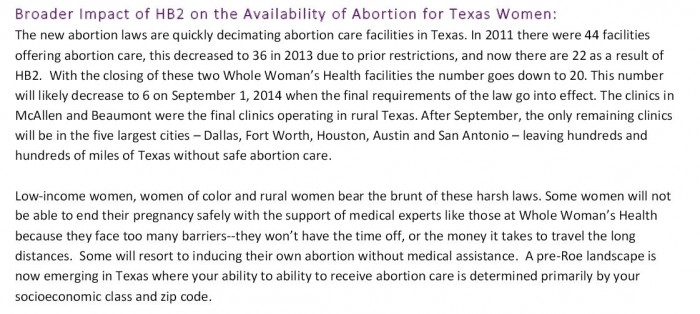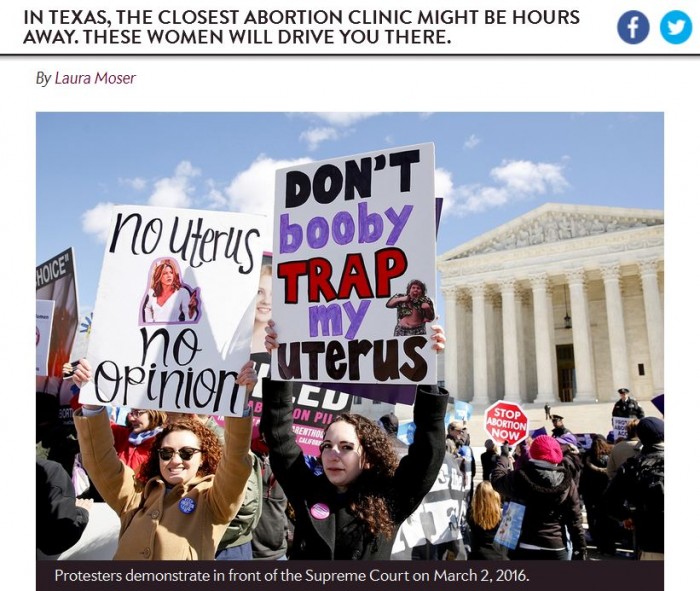While we await the decision from the Supreme Court in a case that challenged a pro-life law which forced the closure of several substandard abortion clinics in Texas, hundreds of Texas women have learned that they will have to travel further for obstetrical care after the closing of an OB unit in the state. The news will affect workers who are now slated to lose their jobs, and yet the media is relatively silent. Texas Health Presbyterian has announced that it will close its labor and delivery unit at its Kaufman hospital and even though it will negatively affect women’s health in the state, there is little outrage.
Flashback only a few years ago after when closing of several abortion facilities in Texas following sweeping pro-life legislation, caused an uproar and constant drum beat of outrage from pro-abortion women’s groups and the news media. But, alas, this unit is helping babies be born and not taking their lives.
Texas Presbyterian claims that there has been a decline in the number of women seeking their services and that is what has prompted their decision to close the Kaufman OB unit in May. But, less than a year after an Obstetrics Unit in another Texas city, Denton closed, a neighboring hospital said they noticed a huge increase in deliveries.
“It happened literally overnight,” nurse manager Dena Shapley told the Denton Record Chronicle in March. “We were delivering around 150 to 160 babies per month, and then literally that next month we were delivering around 240 babies per month.”
In Kaufman, the closure will force pregnant women to drive potentially long distances. The limited remaining options for care are at least 40 miles away, putting women and their babies at greater risk. The closure is also ending the practice of the city’s only OB doctor.
Despite hospital officials claiming this long distance will give women ample time to arrive at another obstetrics unit, a hospital nurse who spoke to Fox4 in Dallas said this will not help the women who have typically walked through the doors to deliver within minutes of their arrival. Even though the hospital says it will accept women into their Emergency Room, the nurse, who pointed out that the closure will affect mostly “lower socio-economic” women, claimed that no one will be available to do an emergency C-section. The hospital responded by noting that in cases of emergencies, the women would have to be transported by ambulance the 40 miles to Dallas.
Contrast this with the reaction that the closure of an abortion clinic has had in the state. When HB2 was passed, it did the unthinkable, so says the abortion lobby. The legislation sought to improve women’s safety by doing things like….requiring doctors who work at abortion clinics to have hospital privileges and also required abortion clinics to meet the standards of ambulatory surgical centers. (Oh…the horror!) Following the passage of the pro-life legislation, now being challenged before the US Supreme Court, the nation was exposed to a constant drum beat of criticism portraying images of women forced to drive for miles in order to obtain an abortion. This image (below) is a capture from Whole Women’s Health abortion chain blog who challenged the Texas pro-life law:

Since HB2’s passage, abortion enthusiasts have crawled out of the woodwork to decry the closures as a direct attack on their “right to abortion.” The media has been swift to measure the distance a woman might have to travel if their otherwise unfit abortion clinic were to close down. They predicted dire health consequences from the closures, none of which have materialized in the state.

Headline and screen grab from Slate Magazine article online
Yet, in light of the Texas OB unit closing, I hear only crickets when it comes to – oh- say “A woman’s right to a safe and simple delivery.” And, believe it or not, this is not a new phenomenon women are facing in the state or the nation for that matter [still hearing crickets?].
According to ACOG, “Rural America” is home to 22.8% of U.S. women aged 18 years and older. Each year, about 500,000 women in the United States give birth in rural hospitals, yet easy access to labor and delivery units has been declining.

A spokesperson for the Texas Presbyterian Hospital told Fox4 that many rural hospitals have closed their OB Unites in past years. This includes Ennis Regional Medical Center which discontinued obstetrics services in 2016.
According to a report, published in 2007 by the The Walsh Center for Rural Health Analysis, entitled Why Are Fewer Hospitals in the Delivery Business?, from 1985 to 2000, the number of hospitals that provided obstetric services dropped by 23%. As a result, more than one-third of counties in the US lacked hospital-based obstetric services in 2000, significantly more than the one-fifth of counties without hospital-based obstetric services in 1985.
A 2015 story published by NPR reported that 17 of 54 of Alabama’s rural counties have hospitals that offer obstetrics services, calling it, “one of the state’s greatest healthcare challenges.” Even more shocking, a 2016 study of rural hospitals nationwide found that 7.2 percent of rural hospitals in the study had closed their obstetric units. The authors who published their findings in the January issue of Health Services Research also found that:
These units were smaller in size, more likely to be privately owned, and located in communities with lower family income, fewer obstetricians, and fewer family physicians. Prenatal care was still available in 17 of 19 communities, but local women would need to travel an average of 29 additional miles to access intrapartum care.
“The fact that closures continue happening — over time that means the nearest hospital gets farther and farther away,” Katy Kozhimannil, who co-authored the analysis told Kaiser Health News.
The disconnect between accessing obstetric services versus abortion services for women in the state Texas as well nationwide is glaring. It reveals that the majority of abortion defenders are more concerned about whether low-income and/or rural women access abortion rather than having access to a place where they can safely give birth. This displaced focus also reveals that the media is lax in reporting the full story of what is happening in Texas. And, while we await the Supreme Court’s decision on the Texas pro-life law, one thing is certain, the circus around abortion will continue while more obstetrics units close down.